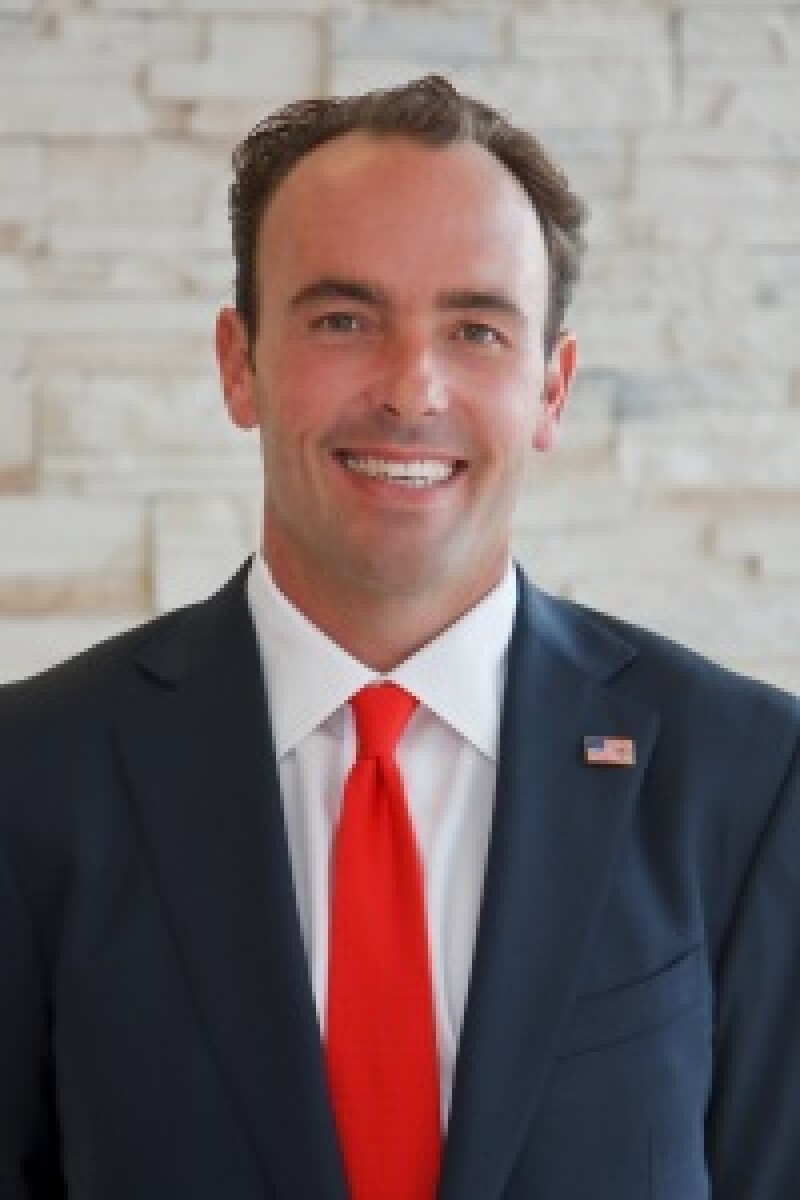Also on the blog in the past week were:
Read all the latest news from the AIPLA Annual Meeting
Concern and confusion at the US Copyright Office
We’ve also posted the following articles in the past week (log in via subscription or free trial):
New AIPLA president outlines three goals for the year
Copyright and cheerleaders at the Supreme Court
Women in IP Law give tips for taking the lead
The USPTO's Michelle Lee looks back
Debating the Defend Trade Secrets Act
What in-house look for in outside counsel
Interview: AIPLA President Denise DeFranco
Revising copyright reform expectations
Daniel Marti's call for collaboration
Digital transmissions and the ITC
Avoid the "Meep Meep effect" in demand letters
Interview: Judge Hacon and Kate O’Rourke on IP Pro Bono
When enough is enough in patent prosecution
Division over disparaging marks
AIPLA's continuous balancing act
US acting register of copyrights announced as Pallante takes new role
Revising duty to disclosure
The USPTO has proposed to adapt its duty to disclosure rule, in a Federal Register Notice. The new rule would create a “but-for” materiality test designed to be consistent with the Federal Circuit’s Therasense decision in 2011.

The Pharma Patents blog gave a summary of why the USPTO has done this: “According to the Federal Register Notice, the USPTO believes these changes to Rule 56 will ‘harmonize the materiality standard for the duty of disclosure before the Office with the … standard … for establishing inequitable conduct before the courts,’ and also reflect the court’s ‘recognition that affirmative egregious misconduct satisfies the materiality prong of inequitable conduct.’ The USPTO notes that having a ‘unitary materiality standard [will be] simpler for the patent system as a whole,’ and is expected to reduce ‘the frequency with which charges of inequitable conduct are raised against applicants and practitioners for failing to disclosure material information to the Office.’
Pharma Patents added: “Consistent with the Federal Circuit’s comments, the USPTO ‘expects that adopting the but-for materiality standard [will] reduce the incentive to submit marginally relevant information in [IDSs]’ and thereby [‘further the Office’s goal of enhancing patent quality’. In this regard, the Federal Register Notice explains that “adoption of the but-for standard for materiality should lead to more focused prior art submissions by applicants, which in turn will assist examiners in more readily recognizing the most relevant prior art.” On the other hand, the USPTO believes that the revised rule still will “encourage applicants to comply with their duty of candour and good faith,” and address USTPO concerns regarding affirmative misconduct.”
The USPTO has opened a comment period that ends on December 27.
Uptown Funk gon’ give it to Collage?
Mark Ronson and Bruno Mars are being sued in a California federal court for copyright infringement over their 2014 hit “Uptown Funk”, reports Billboard.
The lawsuit was filed by Collage, a funk band active in the early 1980s, which claims “Uptown Funk” is “almost indistinguishable” from its 1983 song “Young Girls”.
The complaint says: “many of the main instrumental attributes and themes of ‘Uptown Funk’ are deliberately and clearly copied from ‘Young Girls’, including, but not limited to, the distinct funky specifically noted and timed consistent guitar riffs present throughout the compositions, virtually if not identical bass notes and sequence, rhythm, structure, crescendo of horns and synthesizers rendering the compositions almost indistinguishable if played over each other and strikingly similar if played in consecutively.”
Only one member of Collage is still alive. The estates of two other members are also plaintiffs.
This is not the first time the song has been accused of infringing copyright. The Gap Band was awarded song writing credits last year after citing similarities with the 1979 hit “Oops Up Side Your Head.”
Bass racks up more wins

Kyle Bass got his first win in a Patent Trial and Appeal Board final written decision on October 21. Further good news came last week when the Board cancelled all claims on two Celgene patents related to cancer drugs Thalomid, Revlimid and Pomalyst, reports Corporate Counsel.
The Coalition for Affordable Drugs had filed four inter partes review against the patents. Celgene unsuccessfully attempted to have Bass sanctioned.
As Corporate Counsel reports: “A year ago, it wasn’t clear that the PTAB would entertain the Coalition’s patent challenges at all. Celgene had tried to sanction Bass, saying he was abusing the IPR process to advance a short-selling strategy. Bass has acknowledged making money on the proceedings, but says he’s also serving the public’s need to knock out bogus pharmaceutical patents that inflate the price of drugs.”
More details on Pallante’s removal

Copyright observers were surprised at the recent news that US Librarian of Congress Carla Hayden had removed Maria Pallante as US register of copyrights and appointed her as senior advisor for digital strategy, with Karyn Temple Claggett becoming acting register of copyrights. It soon emerged Pallante had refused the role and resigned from the Library of Congress. Mary Rasenberger, executive director of The Authors Guild, met with Hayden last week to express her concerns about the future of the Copyright Office and the selection of the next register. Rasenberger revealed details in a blog post.

“When I asked Dr Hayden about the reasons for Maria’s removal, she referred us to her public statements, saying it was a transfer and nothing more. She explained that the decision was hers alone and denied that the tech sector influenced the move or that the Copyright Office’s policy positions under Maria had anything to do with her transfer. Dr Hayden seemed surprised that the transfer caused such an uproar in the copyright community.” She added: “When we asked Dr Hayden whether she intended to respect the traditional role of the Copyright Office setting policy without interference from the Library, she very clearly stated that she does not intend to weigh in on copyright law or policy. She said that policy and legislative efforts are the domain of Congress, not the Library. Her job, she explained, requires her to ensure that the Copyright Office has the technology and resources for the proper operations of the registration and recordation systems.”
Dancing Baby at the Supreme Court?
The Supreme Court moved a step closer to taking on the Dancing Baby copyright case this week when it asked the US government to weigh in on Stephanie Lenz v Universal Music.

“The Solicitor General is invited to file a brief in this case expressing the views of the United States,” said the Supreme Court in an order.
In March this year the Ninth Circuit amended its opinion in the case, keeping the affirmance of the district court’s denial of cross motions for summary judgment relating to the propriety of Universal Music’s takedown notice under the DMCA, but the opinion and dissent differed from the original in a number of respects.
The Ninth Circuit held that copyright holders are required to consider fair use before sending a takedown notice. But the amended opinion removed a statement that failure to consider fair use "raises a triable issue as to whether the copyright holder formed a subjective good faith belief that the use was not authorised by law".
In 2007 Stephanie Lenz posted a 29-second video to YouTube of her children dancing in her kitchen to the Prince song "Let’s Go Crazy" playing in the background. Universal Music Group sent YouTube a notice under the Digital Millennium Copyright Act (DMCA), claiming that the video infringed the copyright in Prince’s song.
The Electronic Frontier Foundation sued Universal on Lenz’s behalf, arguing that Universal abused the DMCA by improperly targeting a lawful fair use.
In brief
- Awful news from San Francisco. Kilpatrick Townsend partner James Gilliland Jr was murdered outside his home last week. The law firm said in a statement: "Jim will be missed deeply. He was truly a great lawyer, and his many clients trusted him with their most difficult cases. Jim had been successfully trying cases in federal and state courts around the country for 35 years. Over his amazing career, Jim led our firm in many ways -- as Managing Partner, Chairman, and most recently served as Chairman of our Litigation Department."
- The Likelihood of Confusion blog ran a thorough analysis of the recent case in which Tiffany was awarded nearly $16m against Costco.
- AIA patents are approaching 50% of newly issued patents, according to Patently-O.










